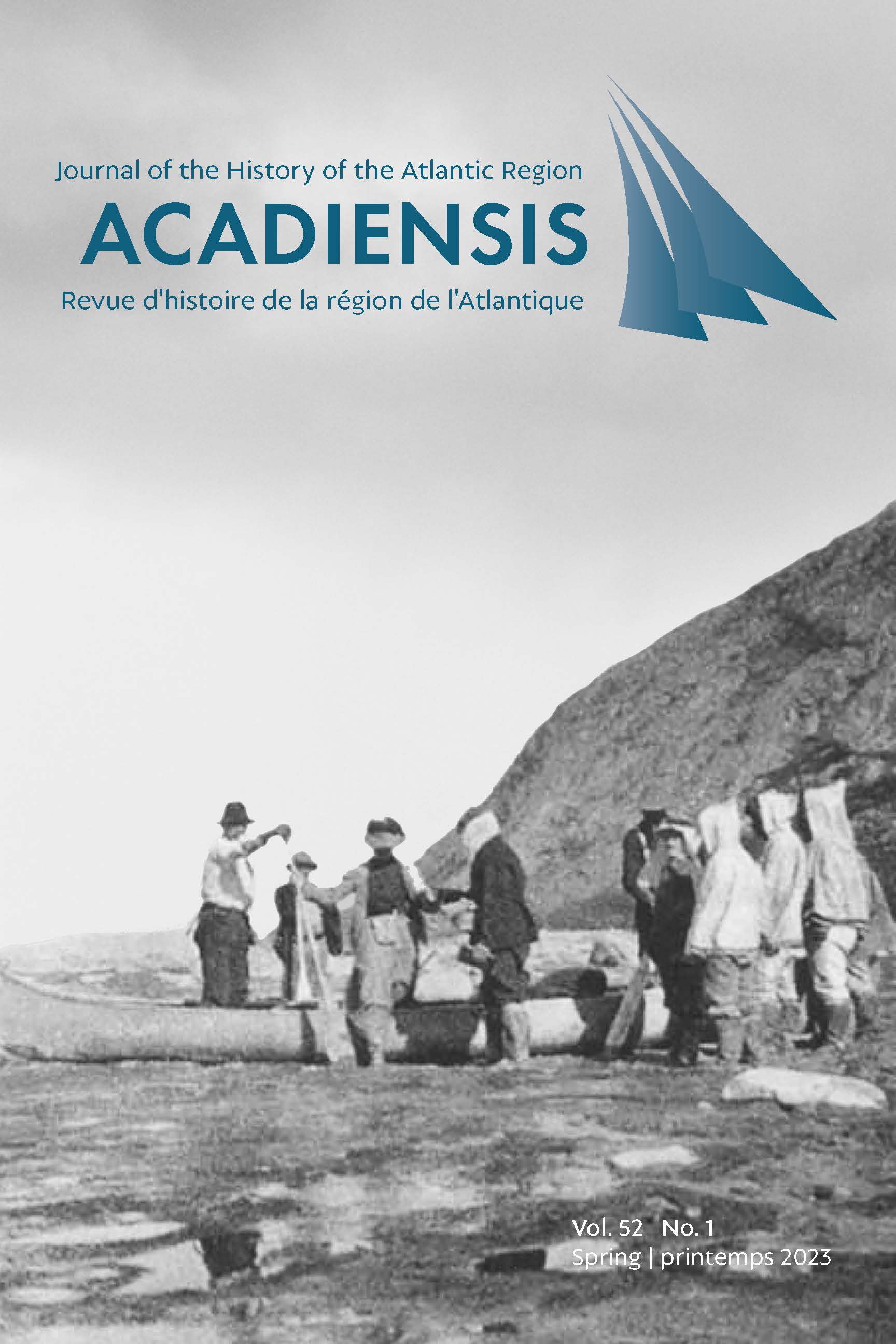Abstract
This article focuses on Canadian Mina Hubbard’s expedition through the Labrador-Ungava Peninsula in 1905. In so doing, it examines the notion of the northern non-Indigenous explorer/traveller as witness. It considers two practices that were essential to Hubbard in the construction and performance of her identity as an explorer: empirical observation and authorship. Hubbard’s efforts to present herself as a reliable northern witness, in contest with her wilderness guides, also highlight the kinds of racialized, classed, and gendered identities that were excluded from the work of northern exploration around the turn of the century.
Copyright for articles published in this journal is retained by the author(s), with Acadiensis being granted a non-exclusive licence to each and every right in the work throughout the world. After publication of the work, the author(s) shall have the right to self-archive the work and to reprint the work in whole or in part in books authored by or edited by the author(s) without the payment of any fee. In these other formats, however, the author or authors are required to acknowledge the original publication of the work in the pages of the journal. In the case of any requests to reprint the work, Acadiensis will require a standard permission fee -- to be divided equally between the journal and the author. In the event that such requests are received by the author(s), the author(s) shall direct such requests to the journal.

